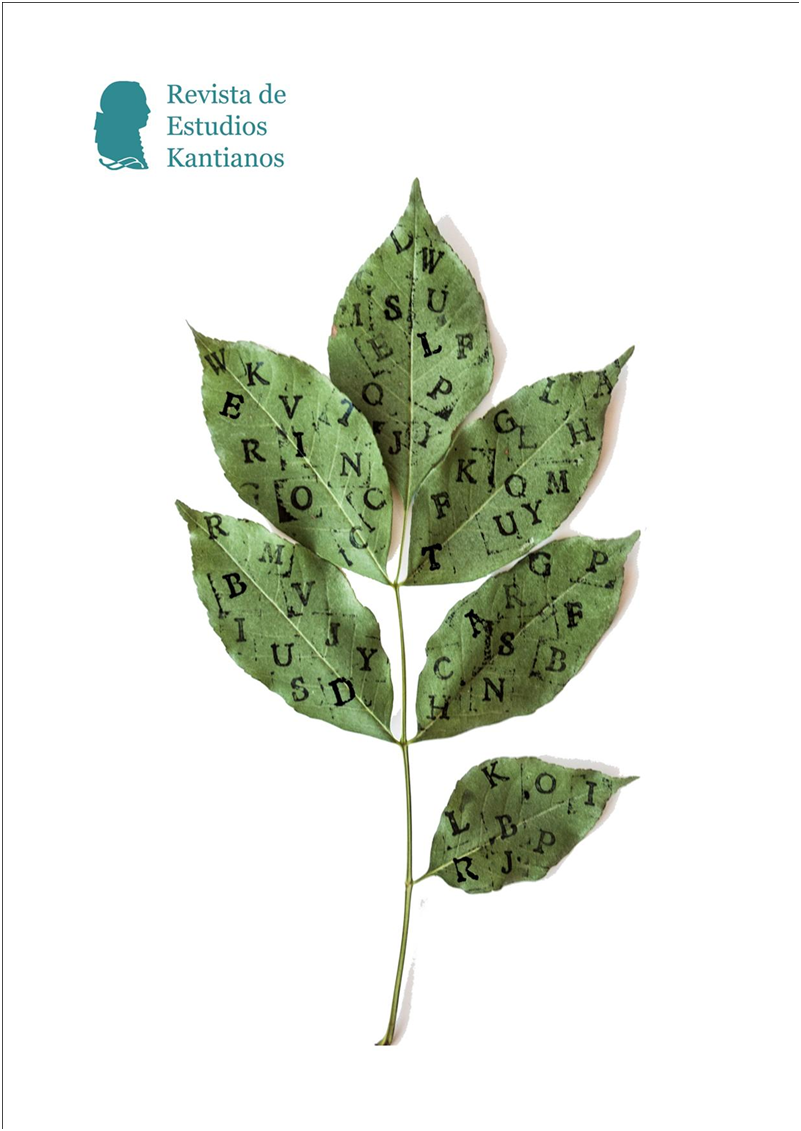L'honneur de la raison
DOI:
https://doi.org/10.7203/REK.8.1.24680Keywords:
Kant, mal, raison, antinomie Abstract
Abstract
This article attempts to show that the doctrine of the impossibility of total error (DIET) is one of the main presuppositions of Kant's moral thought and not just of his theoretical thought. I will exhibit how the antinomy of reason is one of the most important motives of Kant's philosophical inquiry and then illustrate my interpretation of radical evil by advocating an interpretation of reason in Kant as a unitary faculty.
 Downloads
Downloads
 References
References
Allison, H. (1995). Reflections on the Banality of (Radical) Evil. Graduate Faculty Philosophy Journal, 18(2),141-158.
Beck, L. W. (1960). Das Faktum der Vernunft. Société Française de Philosophie, 52.
Bernecker, S. (2006). Kant zur moralische Selbsterkenntis. Kant-Studien, 97(2), 163-183.
Fichte, J. G. (1962). Gesamtausgabe der Bayerischen Akademie der Wissenschaften. Frommann-Holzboog. (GA)
Grenberg, J. (2010). What Is the Enemy of Virtue? En L. Denis (Ed.), Kantʼs Metaphysics of Morals: A Critical Guide (pp. 152-169). Cambridge University Press.
Hinske, N. (1987). La via kantiana alla filosofia trascendentale. Japadre.
Horn, C. (2011). Die menschliche Gattungsnatur: Anlagen zum Guten und Hang zum Bösen. En O. Höffe (Ed.), Die Religion innerhalb der Grenzen der bloßen Vernunft (pp. 43-80). Akademie Verlag.
Kant, I. (1980). Gesammelte Schriften. Akademie-Ausgabe. (1900). Oeuvres philosophiques. Gallimard. (AA)
Miklo’s, V. (2018). Von Kant zu Schelling: Die beiden Wege des Deutschen Idealismus. de Gruyter.
Nabert, J. (1955). Essai sur le mal. PUF.
Papish, L. (2018). Kant on Evil, Self-Deception, and Moral Reform. Oxford Academic.
Pasternack, L. (2014). Kant on Religion within the Boundaries of Mere Reason. Routledge.
Salvetti, F. (2014). Judaisme et christianisme chez Kant. Du respect de la loi à son accomplissement dans l’amour. Cerf.
Sticker, M. (2022). Rationalizing (Vernünfteln). (Elements in the Philosophy of Immanuel Kant). Cambridge University Press.
Vető, M. (2018). Von Kant zu Schelling. Die beiden Wege des Deutschen Idealismus. de Gruyter.
Weil, E. (1970). Problèmes Kantiens. Vrin.
Welsh, M. (2019). Kant über den Selbstbetrug des Bösen. Kant-Studien, 110(1), 49-73.
Willaschek, M. (1991). Die Tat der Vernunft. Zur Bedeutung der Kantischen These vom ‘Factum der Vernunft’. En G. Funke (Ed.), Akten des VII. Internationalen Kant-Kongresses Mainz 1990 (Bd. II.1, pp. 446-456). Bonn.
Wood, A. (2010). Kant and the Intelligibility of Evil. En P. Muchnik et S. Anderson-Gold (Eds.), Kantʼs Anatomy of Evil (pp. 144-172). Cambridge University Press.
Wyrwich, T. (2015). Böses, radikales. En M. Willaschek, J. Stolzenberg, G. Mohr, et S. Bacin, S. (Eds.), Kant-Lexikon (pp. 305-310). de Gruyter.
Published
How to Cite
-
Abstract332
-
.PDF (Español)129
-
EPUB (Español)87
Issue
Section
License
![]()
The authors who publish in this journal agree with the following terms:
- The authors retain their copyright and guarantee to the journal the right to be the first to publish the work and to license it under a Creative Commons Attribution License that allows others to share the work with an acknowledgement of its authorship and the initial publication in this journal.
- Authors may separately establish additional agreements for non-exclusive distribution of the version of the work published in the journal (for example, placing it in an institutional repository or publishing it in a book), with acknowledgement of its initial publication in this journal.
- Authors are allowed and encouraged to disseminate their work electronically (e.g., in institutional repositories or on their own website) before and during the submission process, as this can lead to productive exchanges as well as earlier and greater citation of published work (see The Effect of Open Access).








